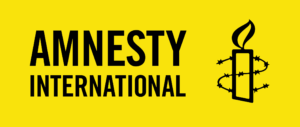After Fidesz’ overwhelming electoral victory in April 2018, many observers believed Prime Minister Orbán would curb his voracious appetite for turning Hungary into an illiberal state. These expectations were grievously miscalculated.
By the Hungarian Helsinki Committee, Hungarian Civil Liberties Union and Amnesty Internartional Hungary
Hungary. Hungary remains part of the European Union (EU), but its actions
contradict the core values of the EU. Although constitutional institutions do
exist, they no longer act as checks and balances on executive power but merely facilitate
its operation. Over the past years, legal reforms have weakened independent
institutions and independent media, universities, human rights and civil
society organizations have been under attack. Now, backed by its parliamentary
supermajority, the government has turned to dismantling the last remaining and
independent defenders of pluralism and of the rule of law by enacting new
constitutional reforms and laws. Again independent institutions and voices are
the first targets of this renewed attack.
We are at the moment when rule of law ends
and arbitrary rule begin
TIMELINE– FOLLOWING APRIL 2018 ELECTIONS
|
Mid-April |
Key |
|
12 |
Figyelő |
|
June |
Three |
|
19 |
Figyelő |
|
20 |
The |
|
18 |
European |
|
20 |
Law |
|
August |
Immigration |
|
28 |
The |
New laws jeopardise independent courts
With no prior public consultation and merely
three weeks after the bills were proposed, the Hungarian Parliament adopted the
Seventh Amendment to the Fundamental Law on 20 June.
Given the present collapse of the
legislature into an overpowering executive, incremental changes to the judicial
organization are snowballing into a real and serious threat to the rule of law.
The latest constitutional amendment further blurs the boundaries between
executive and judicial power, and expands government control over the courts. By
further limiting judicial independence and restricting the freedom of judges to
interpret the law one of the last bastions of the rule of law is diminished. A
new administrative court system may be dominated by judges who, arriving from
the state’s public administration, will rule on cases involving elections,
taxes and public procurement, among many other key civil liberties issues. Its
head will be a political appointee selected by Parliament. After months of
aggressive campaigning against civil society and the political opposition,
senior politicians and the government’s media machinery began to discredit
individual judges.
Propaganda campaigns intimidate civil
society and curb public dissent
The Hungarian government runs and backs
propaganda and smear campaigns to discredit and intimidate dissenters not only
through its own agencies and public media but also through the centrally
directed private media portfolio of a close circle of friendly oligarchs.
On 12 April, just four days after election
day, Figyelő, a weekly magazine that is part of the government’s propaganda
machinery, published an article titled “The Speculator’s People”, which
consisted of a list of 200 persons who allegedly work for so-called ‘Soros
organisations.’ This followed the often-repeated narrative in the election
campaign that George Soros commands an ‘army of mercenaries’ in Hungary. Those
named included numerous academics of the Central European University, and the
entire staff of human rights watchdog NGOs such as the Hungarian Helsinki
Committee, Amnesty International Hungary, Hungarian Civil Liberties Union,
anti-corruption NGOs Transparency International Hungary and K-Monitor as well
as NGOs working on Roma or migrant integration issues.
On 12 June, István Hollik, Fidesz-KDNP
coalition spokesperson, held a press conference with the KDNP youth wing in
front of Amnesty International Hungary’s building, and affixed labels on the
door branding it an “organization that supports immigration”. On 14
June, Menedék, an NGO helping refugees to integrate was also publicly branded
as such. On 27 June, Fidelitas, the Fidesz party’s youth wing held a press
conference and labelled the building housing the Hungarian Helsinki Committee.
This propaganda campaign was designed to
prepare the ground for new laws that unjustifiably restrict the rights of
targeted civil society organisations and individuals associated with them.
New laws to starve and strangle civil
society
The attacks targeting civil society
organisations helping asylum-seekers, refugees and migrants culminated from
smear campaigns to the threat of criminal prosecutions and sanctions. The final version of the ‘Stop Soros’ bill
became public on 29 May, and was adopted just three weeks later on 20 June –
World Refugee Day. The law is in force since 1 July 2018. It changed the Criminal Code by making the
provision of support to asylum and residence applications a crime punishable
with one year of imprisonment.
The government decided not to heed the
advice of international organisations that called for respect for freedom of
expression and association and the legitimate role that civil society plays in
human rights protection. It disregarded recommendations by the Council of
Europe’s Venice Commission and the OSCE Office of Democratic Institutions and
Human Rights or the European People’s Party. The Venice Commission/ODIHR found
that the new criminal provisions breach freedom of association and of
expression as it criminalises legitimate activities and lacks legal certainty.
On 18 July, the European Commission launched an infringement action over the
law, giving the government a two-month deadline to respond to the formal letter
of notice.
On 20 July, Parliament adopted a ‘special
tax on immigration’ that entered into force on 25 August 2018. The law is effectively
a tax on free speech. A 25 percent tax is levied on financial support for
activities and organisations that “support migration” through activities such
as “carrying out and participating in media campaigns”, “building and operating
a network”, “educational activities” and “propaganda activity that portrays
immigration in a positive light”. The tax is payable by the organisation giving
the support. Certain donors are exempted, such as political parties and party
foundations and organisations whose exemption is guaranteed by an international
treaty. The tax law is intentionally vague and has created uncertainty about
how it will be applied. It paves the way for politically-targeted tax
investigations of NGOs which are already under attack. The tax impacts
activities taking place in Hungary as well as those by Hungarian organisations
carried out anywhere in the world; hence, it also hampers the engagement of
Hungarian civil society with transnational partners, and at EU or global level.
On 20 July, Parliament adopted a new Law on
Freedom of Assembly, which will make it more difficult for Hungarian citizens
to protest. While clarifying several controversial issues, the new law is prone
to bring about a much more uncertain situation and the conditions for prior
restraint are very extensive.
Media pluralism rapidly shrinking
The entire media system has been
transformed to disseminate political propaganda messages more effectively than
ever, through a small group of media owners who are completely dependent on the
governing party. As the pro‐government media
portfolio is rapidly expanding, well‐established independent and critical media outlets, that used to
play a key role in shaping public discourse, have almost disappeared from the
market.
Since the 8 April elections, several
important media outlets closed down (daily Magyar Nemzet, weekly Heti Válasz)
or changed ownership (HírTV). This further strengthened pro-government
domination in print and broadcast media. Government action helped consolidate
media outlets in the hands of pro-government owners, who control much of the
domestic media and use their outlets to push the government’s anti-immigrant,
nativist message. Government effectively subsidizes these private media
companies through high-volume advertising by ministries and state-owned
companies.
Academic and scientific freedoms under
threat
On 19 June, Figyelő published a second list
of names and pictures of academics and social scientists affiliated with the
Hungarian Academy of Sciences who study gender, migration, ethnic minorities
and LGBTQ policies. The article claimed that the research topics are
politically suspicious, suggesting that the government should have a “greater
insight” into the Academy’s work. The attack came only days after the
government proposed changes to its research funding system that puts the newly
formed Ministry for Innovation and Technology in charge of decisions over funding
for research.
In August, the government announced plans
to eliminate gender studies from the country’s list of accredited university
study programmes. Adoption of the government decree is expected at any time.
This would constitute a case of state intervention into higher education that
is unprecedented in the European Union. The two universities concerned,
Hungary’s biggest state-funded university ELTE, and the private Central
European University, were not consulted in advance of the plans and had less
than 24 hours to react to the proposal. This measure would pose a serious
threat to academic freedom and institutional autonomy and confirm the trend
towards increased state control over universities.
The first victim of the special immigration
tax is the Central European University, which announced on 28 August that it
has had to suspend, with the immediate effect, its Open Learning Initiative
(OLIve), for registered refugees and asylum seekers, together with the
administration of its EU-funded Marie Curie Research Grant on migration policy
in Central and Southern Europe. Regarding the 2017 higher education law that
has put the legal status of the Budapest-based Central European University in
limbo, in July 2018, the European Commission requested that the Court of
Justice of the EU follow the expedited procedure for the case. The Commission
is awaiting confirmation from the Court.
Asylum: Final step in denying access to
protection – denial of food
Through border restrictions and limiting
access to the asylum system, Hungary has made it almost impossible for people
to file an asylum claim or obtain international protection. The Seventh
Amendment of the Fundamental Law and changes to the Asylum Act, passed as part
of the ‘Stop Soros’ law, effectively bar access to protection for
asylum-seekers by introducing new grounds for declaring an asylum application
inadmissible, restricting the right to asylum only to people arriving in
Hungary directly from persecution. Given that asylum applications can only be
submitted in one of two transit zones at the Serbian border, and the government
considered Serbia safe, all applications will be found inadmissible. On 18
July, the European Commission launched an infringement action over the law,
giving the government a two-month deadline to respond to the formal letter of
notice.
In mid-August, the immigration office
stopped giving food to adult asylum-seekers who challenged rejection decisions
in court, in an attempt to pressure applicants into leaving the transit zone
and voluntarily abandoning their asylum claims. Eight asylum-seekers had to
seek interim measures from the European Court of Human Rights to stop the
inhuman treatment and start receiving meals. After a two-week legal battle, the
immigration office began to give food to everyone in detention. However,
without changes to the law, migrants in detention could be denied food once
more.
Criminalisation of homelessness
The government has further stigmatised
homeless people as criminals. The Seventh Amendment to the Fundamental Law bans
homelessness by referring to the protection of the public use of public space.
The prohibition of habitual residence in public places seriously violates human
dignity. While the Amendment requires all state bodies to protect Christian
culture, it also conversely persecutes people without shelter. Until now,
sleeping rough could only be deemed illegal by an act of parliament or
municipal decree in respect of certain parts of a public place. Now
homelessness is banned throughout the whole country.

